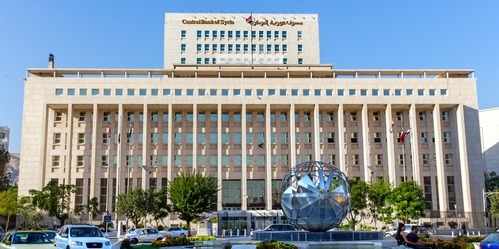How can Islamic finance support Syria’s post-conflict recovery?
As Syria emerges from a 14-year-long conflict that has decimated its economic and social structure, the country continues to face several challenges.
A precarious security situation, damaged infrastructure and institutions hollowed out by years of corruption and international sanctions have dealt a serious blow to its economic progress.
Yet amid the devastation, there are modest signs of change. A new administration has emerged, signalling an interest in trade and investment, and with a population of around 25 million, of which Muslims form an overwhelming majority - Islamic finance could play a meaningful role in the country’s growth.
“A phased and strategic approach is essential for the development of a functional Islamic finance sector in Syria, one that establishes a strong foundation while taking into account the country's challenges,” says Dr. Abdelilah Belatik, Secretary General at General Council for Islamic Banks and Financial Institutions (CIBAFI).
Top-tier push
Following the ouster of erstwhile premier Bashar Al Assad in December 2024, Syria’s new administration has pledged to support a liberalised, market-oriented economy and integrate Islamic finance into its recovery strategy.

Weeks into taking office, the President Ahmad Al Shara-led government announced that Islamic banking would form a core part of its financial sector.
“Islamic finance is clearly a priority for the new Syrian government,” says Najib Al Aswad, managing partner at Shariah Audit Group, a UK-based Islamic finance consultancy.
“One of the key reforms introduced recently was the approval of Islamic windows, allowing conventional banks to offer Shariah-compliant services.”
Of the fifteen privately licenced banks in Syria, four are Islamic (Cham Bank, Syria International Islamic Bank, Al Baraka Bank and mostly recently National Islamic Bank).
Meanwhile, Central Bank data suggest that private banking assets are close to $3.5 billion, the World Bank said in a July report.
There is a stated desire within the government to develop a clear, overarching strategy, identifying priorities and gaps in the sector, adds Al Aswad.
“As part of this, the authorities are revisiting the role and structure of Syria’s central Shariah board. While such a board previously existed, its mandate and scope are now under review to ensure it can support the sector more effectively.”
Other reforms include a flexible exchange rate system, permitting the use of foreign currencies (like the US dollar) as well as proposals for a new tax framework.
Beth Morrissey, managing partner at Kleiman International Consultants, says the re-opening of the Damascus Securities Exchange, which hosts a Shariah index, is widely viewed as a major achievement. The bourse signed a preliminary agreement with the Saudi Tadawul Group last month to enhance cooperation.
“There is vast scope for both conventional and Islamic finance for the entire economy and I expect the use of Islamic financing tools will expand as the overall financial sector recovers and begins to develop,” adds Morrissey.
In August 2024, Syrian authorities finalised legislation on sovereign sukuk issuances, following an earlier directive to enable domestic Islamic lenders to issue them. In a post recovery situation, Belatik believes that regional collaboration and sukuk issuance for infrastructure projects should be pursued to attract foreign direct investment.
“By creating enabling conditions for cross-border partnerships with established Islamic financial institutions, Syria can access much-needed capital for rebuilding public infrastructure,” he says.
Reintegration, personnel challenges stymie sector growth
The US, UK and EU removed long-standing sanctions on Syria in May, marking a watershed moment for global economic reintegration. No sooner had the sanctions been lifted than Syria conducted its first post-conflict international bank transfer via the SWIFT system.
Despite the momentum, challenges continue to plague the system. Jihad Yazigi, a visiting fellow at the European Council on Foreign Relations, notes that despite the sanction ease, a key challenge is Syria’s presence on the Financial Action Task Force grey list, which relates to concerns around anti-money laundering and counter-terrorism financing standards.
Morrissey echoes the concern. “Reintegration with the banking system requires upgrading rules and regulations as well as Central Bank oversight, which will not happen quickly. I believe they have started down the right path, but it will take time. The system will deepen more broadly when remittances are channelled through the formal system.”
In addition to security challenges, stakeholders highlight critical factors such as the lack of financial literacy and inadequate human capital as deterrents to sector progress.
“Local expertise is limited and needs to be developed in all relevant areas. Certainly, regional support and partnerships are crucial to provide the expected levels of technical know-how,” says Mohammad Majd Bakir, director, Professional Standards Development at Bahrain-headquartered AAOIFI.
“The ordinary customer and stakeholders dealing with Islamic financial products and services lack proper familiarity. I do think that increasing awareness amongst these ranks would improve the levels of trust in and turn out to the various types of Islamic financial service offerings.”
The ‘Gulf’ factor
Despite challenges, Syria can leverage Islamic finance in terms of trade and investment.
“Syrian banks with ties to solid regional banking groups are best positioned to build on their groups’ operational capacity and financial resources to restore key banking services, starting with correspondent banking relationships,” the World Bank report said.
Yazgi, adds that most Islamic banks in Syria are majorly owned by Gulf institutions, which offers them a vantage point as the country seeks to deepen economic and trade ties with the Gulf in coming years. “Alongside Turkey, the Gulf is expected to be a primary source of capital and trade for Syria.”
Commercial Bank of Kuwait owns a 32% stake in Syria’s Cham Bank while leading shareholders of Syria Gulf Bank reportedly came from Gulf countries. Al Baraka Syria is also a unit of Bahrain-based Albaraka Banking Group.
“Syria’s membership in the Islamic Development Bank (IsDB) has been reinstated, and in light of improving regional political ties, countries such as Qatar, Saudi Arabia, and the UAE are reportedly exploring the use of Islamic finance as a way to re-engage with Syria,” says Al Aswad.

Hassan Jivraj